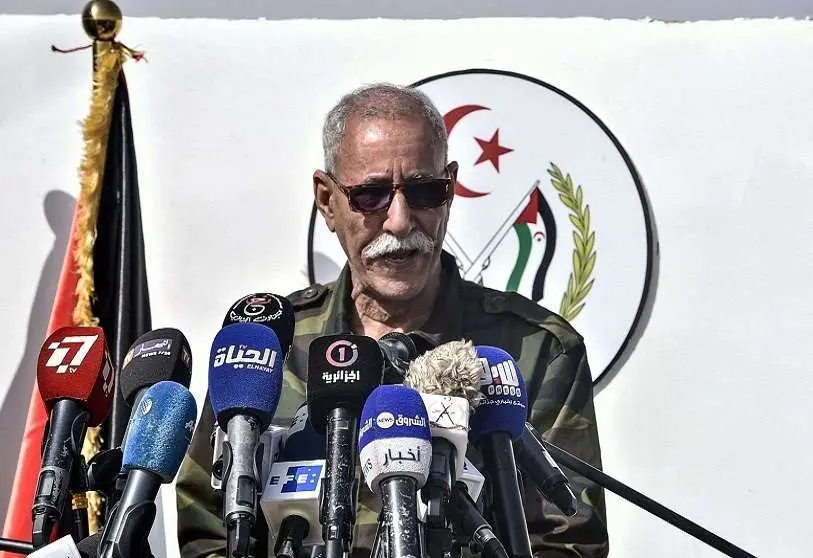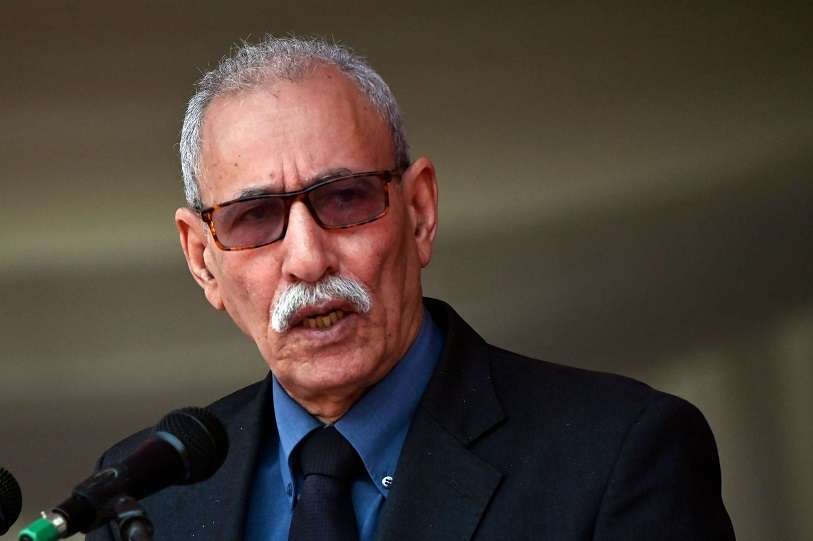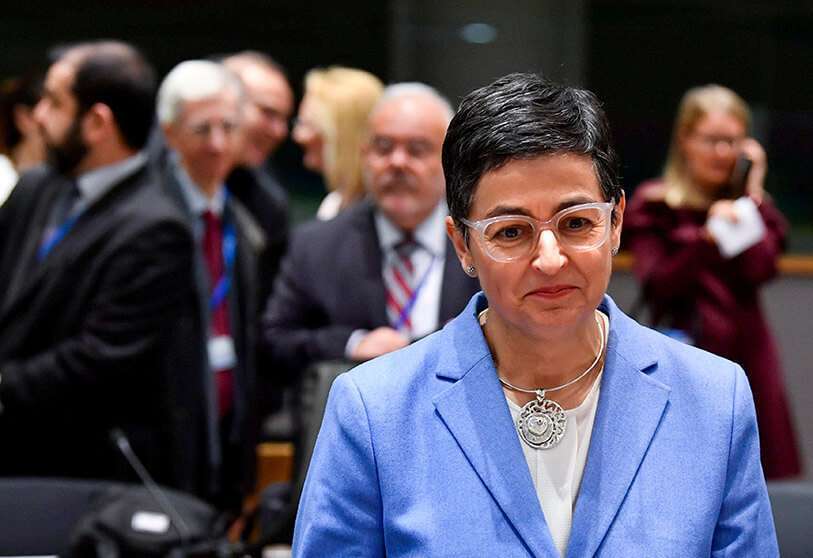Brahim Ghali in Spain: responses and reflections on an unheard-of event

Now that a few days have passed since the news bombshell of Brahim Ghali's entry into Spain, it is perhaps a good time to reflect more calmly on a situation that still involves numerous unknowns, and which continues to threaten to cloud relations between Spain and Morocco as the days go by.
The first thing that continues to draw attention to this affair is the opacity surrounding it, with contradictory information from the outset that has given rise to all kinds of rumours, and on which the various appearances of Foreign Minister González Laya have not helped to shed light, quite the opposite in fact.
One of the first things that came to mind when the news broke a week ago was the similar rumour that emerged a few years ago. A rumour whose details coincided almost to the millimetre with the current situation, including the issue of the false identity. The only thing that changed was the place of destination of the patient, Logroño for Pamplona in that case. This being the case, we are left wondering whether what seemed like a crazy rumour at the time could have been a more or less approximate reality in the light of current events. And whether this is not the first time Ghali has entered Spain under similar circumstances.
The memory of that rumour, as well as some of the details of the report given for the first time by the Jeune Afrique media, the first to spread the news, were some of the main reasons why we initially quarantined the information published by the aforementioned media until it had been further confirmed. Initially there were more doubts than certainties. The news itself sounded strident and unusual, as did parts of it, as they included some hard-to-digest information. One example is the fact that there was talk of the Spanish government's promise of a supposed 'judicial shield' to Brahim Ghali - due to his pending legal cases -, allegedly made to representatives of the Algerian state who, it has been said, mediated in the negotiation for his arrival in our country.
This would lead us to a scenario in which the executive power of a consolidated democracy such as Spain's does not respect the separation of powers and judicial independence. I think we can safely conclude that the hypothesis put forward by the media is difficult to fulfil, and that if the judge in question believes it appropriate to take the legal action he or she deems appropriate, that is what he or she will do.
However, the African media should be praised for getting the main point right, Ghali's presence in Spain. The Polisario's communication apparatus, which spent the whole afternoon playing cat and mouse with the Spanish media, correspondents and agencies, did not contribute much. Faced with the barrage of information that day, the behaviour of the official Saharawi media when it came to reporting was insulting. From the fact that Ghali was in Algiers recovering from COVID, to the fact that he made a stopover in Spain after passing through Germany, to the fact that he was in the Tindouf camps, these were some of the lies that the consumer was given to choose from that day. This meant that, despite having been confirmed by local sources in the La Rioja newspaper in the afternoon, a large part of the Polisario's main media loudspeakers in our country - some of them correspondents in the Maghreb - ignored this information, entrusting everything one hundred percent to these official sources or those close to the Polisario without checking any further. A crass mistake.

Obviously, the Spanish government also contributed to this ceremony of confusion, keeping silent to an unsuspected extent about a fact that affects the general interest until it could no longer hide it. The very same Abdullah Arabi, Polisario's representative in Spain, who did the same while he was precisely that day in Las Palmas de Gran Canaria, and from where he surely participated in the disinformation orders given to the Spanish media to which we referred earlier, also kept quiet. A veil of information orchestrated at various levels. A real nonsense.
In this sense, one of the key questions that remains to be clarified is both the 'modus operandi' used for his entry into Spain, and the legal situation of Ghali in our country. And not only the way in which he entered the country, but also whether he did so with an Algerian diplomatic passport - which in itself is difficult to explain -, whether he was carrying a false identity, or whether the latter was only applied when he was registered once in the hospital. And, of course, the reason for the latter, if the motive was to evade legal action, given that it is well known that Brahim Ghali has a case pending in Spain at the Audiencia Nacional, even though official Polisario sources - the same sources that said a week ago that he was not in Spain - say otherwise and that there is no case against him.
Therefore, without forgetting Ghali's direct involvement in the attacks and murders carried out by Polisario patrols against defenceless Canarian fishermen for a decade, widely denounced by ACAVITE, as well as the accusation against him for the rape of the Saharawi Jadiyetu Mohamed, which also ended up in the Audiencia Nacional, it is worth recalling the ins and outs of the main case against Ghali, for crimes against humanity.
In December 2007, preliminary proceedings were opened via a writ of admission, following a complaint lodged with the Central Investigation Court number 5 of the National High Court by three individuals (Saadani Maoulainine, Hosein Baida and Dahi Aguai) and an association (ASADEDH) for crimes of genocide in conjunction with murder, injuries, illegal detention, terrorism, torture and disappearances, allegedly committed between 1976 and 1987. As a result, Ghali left the country to take up the post of Polisario ambassador to Algeria, thus evading justice. On 16 August 2012, the same court issued an order admitting the complaint for processing.
In 2013, the complainant victims testified as witnesses. Likewise, a search and summons to appear before the courts was issued for those responsible, 28 members of the Polisario Front (including Ghali) and high-ranking officials of the Algerian government, who evaded the summons due to difficulties in identifying them, based on the inaccuracy of the names appearing in the summons. In 2016, in view of his imminent presence in Barcelona to participate in the annual EUCOCO event, Ghali was again summoned by the Audiencia Nacional, which is why he declined to travel to Spain at the last minute when his presence was already confirmed.
On the other hand, the list of judges through whose hands this case has passed is impressive. From Baltasar Garzón, to the last head of this Court of Instruction No. 5, José de la Mata, through the interim period of Pablo Ruz, under whose mandate, in 2012, the definitive push was given to the lawsuit. Now, after the departure of De la Mata a few months ago to his new post at Eurojust (European Union Agency for Criminal Judicial Cooperation), the title of this court falls to Judge Santiago Pedraz, who will take charge of the proceedings that his colleague De la Mata has not had time to conclude. Among them, the one we are dealing with.

The most relevant issue today is that, contrary to what the Polisario and its supporters claim, the case has not been closed. The specific situation of the case is one of "provisional archiving", due to the fact that the Audiencia Nacional sent a rogatory commission to Algeria requesting additional information on these crimes, and asking it to prove whether or not there is an ongoing investigation in Algerian soil, which is why the case was held in abeyance as long as the commission did not arrive in Spain. In the meantime, the case has been reopened several times in order to extend the period of the investigation and so that, each time there have been suspicions that any of the defendants were in Spain or in the European Union, they could be brought to justice. For this reason, while awaiting the prosecutor's report, a request has been made to reopen the provisional file, to check the circumstances of Ghali's stay in Spain, which in turn will lead to the notification and request of the complaint and, if necessary, his arrest.
With regard to this rogatory commission, one does not need to be very clever to know that it will never be answered by Algeria. Its cronyism and protection of the Polisario even extends to the field of judicial cooperation between countries, so that it is a chimera to expect such a commission to produce a fruitful result. However, the existence on national territory of someone who has evaded justice in a case of this calibre is more than enough reason for the complaint to be reopened and notified to the defendant. In any case, and according to the lawyers handling this case, there is more than enough evidence to justify an investigation and conviction (witness, expert witness, etc.) of Brahim Ghali.
The only thing that could paralyse this process is if the magnitude of Brahim Ghali's health problems were to reach an irreversible situation, something that we believe is directly related to the main justification given by Minister González Laya for his stay in Spain. That is, the declaration of "strictly humanitarian" reasons for authorising the hospitalisation of the Polisario Front leader in Logroño.
These words, spoken with respect for the patient's privacy, denote seriousness. Although official Polisario sources have stated that Ghali's diagnosis was COVID-19, and that his state of health is progressing favourably - I repeat, these are the same sources that said a week ago that he was not in Spain -, other media have suggested that the reason for his admission was digestive cancer, an illness he has been rumoured to be suffering from for years. Without ruling out the possibility that both ailments could have coincided in Logroño, listening to the minister it seems more likely that it was the latter. What is certain is that a coronavirus could well be treated in another country where there is no risk of being brought to justice.
Ghali's medical situation is no small matter. Thousands of people depend on it, it is a matter of general interest that clashes with the authorities' pretext of patient privacy. Especially taking into account the situation in the camps, the alleged state of war, and the uncertain future that would open up in terms of a succession that could well represent a turning point in terms of a possible change of less belligerent leadership, in pursuit of the much-demanded solution through dialogue that the UN has been proposing for years, and which a large part of Sahrawi civil society has been desperately calling for. Meanwhile, the Polisario reigns supreme with regard to the state of its leader. In the Tindouf camps, and in other parts of the world, they want to know what is going on, and they also want to stop being lied to. Like a week ago, when Ghali was apparently not in Spain.

